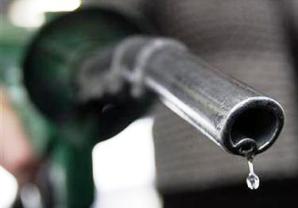 | « Back to article | Print this article |
 A day after agreeing to dole out a record Rs 100,000 crore (Rs 1,000 billion) in fuel subsidy for 2012-13, Finance Minister P Chidambaram said on Thursday cash payouts to oil firms this fiscal will be just Rs 20,000 crore (Rs 200 billion).
A day after agreeing to dole out a record Rs 100,000 crore (Rs 1,000 billion) in fuel subsidy for 2012-13, Finance Minister P Chidambaram said on Thursday cash payouts to oil firms this fiscal will be just Rs 20,000 crore (Rs 200 billion).
At a meeting called by Prime Minister Manmohan Singh, the Finance Minister had yesterday agreed to give an additional Rs 45,000 crore (Rs 450 billion) on top of the Rs 55,000 crore (Rs 550 billion) already paid to oil firms for selling diesel, cooking gas and kerosene at government-controlled rates.
"We have done our sums and this Rs 45,000 crore (Rs 450 billion) is being given yesterday on account but we do not expect any more claims from the Ministry of Petroleum and Natural Gas for 2012-13," Chidambaram told reporters in New Delhi.
State fuel retailers had lost Rs 161,029 crore (Rs 1,610.29 billion) in revenues on selling diesel, domestic LPG and kerosene at government controlled rates which are way below market price.
With yesterday's Rs 45,000 crore (Rs 450 billion), the government has committed to make good Rs 100,000 crore (Rs 1,000 billion) out of this.
Another Rs 60,000 crore (Rs 600 billion) will be chipped in by upstream firms like ONGC.
"In fact there (Oil Ministry's) own number indicated Rs 1,61,000 crore or Rs 1,610 billion (of under-recovery or revenue loss) and if you take note of the fact that we gave them Rs 55,000 crore (Rs 550 billion) earlier and Rs 45,000 crore on Wednesday, that takes care of Rs 1 lakh crore (Rs 1 trillion) and Rs 60,000 crore or Rs 600 billion (would) come from the upstream companies so thats take care of it," he said.
The additional Rs 45,000 crore payment will come out of Rs 65,000 crore (Rs 650 billion) budget for fuel subsidy in the current fiscal, leaving just Rs 20,000 crore (Rs 200 billion).
Also, upstream firms will be expected to chip in Rs 60,000 crore, equal to what they did in 2012-13.
"Now for this year the budgeted (fuel subsidy is) Rs 65,000.
"We still have Rs 20,000 crore or Rs 200 billion (after paying Rs 45,000 crore) and another Rs 60,000 crore will come from upstream companies," Chidambaram said.
"Therefore Rs 60,000 crore plus Rs 20,000 crore, we have got Rs 80,000 crore (Rs 800 billion) and we do not think that the subsidy bill this year will exceed Rs 80,000 crore," Chidambaram said.
"I think sums were done very carefully on Tuesday and therefore we agreed to give Rs 45,000 crore to close last years account," he added.
In 2011-12, when oil firms lost Rs 138,541 crore (Rs 1,385.41 billion) in revenue on fuel sales, the government gave out Rs 83,500 crore (Rs 835 billion) by way of cash subsidy.
This was more than Rs 41,000 crore (Rs 410 billion) in doled out in 2010-11 and Rs 26,000 crore (Rs 260 billion) in 2009-10.
Upstream firms had provided for about 40 per cent, or Rs 55,000 crore (Rs 550 billion), of the under-recovery in 2011-12, up from Rs 30,297 crore (Rs 302.97 billion) in 2010-11 and Rs 14,430 crore (Rs 144.3 billion) in 2009-10.
He said an expert committee under Kirit Pareikh has been asked to suggest change in fuel pricing formula for current year.
"The committee will be asked to give its report as early as possible preferably within a month or so.
"So that for the current year, we can adopt what according to the ministry of finance are more appropriate criteria for deciding the price," he said.
The Finance Ministry wants petrol and diesel to be priced at a rate they can get in export market, rather than current practice of pricing the fuels after adding transportation and customs duty to the international price.
The difference between the Export Parity Price being propagated by the finance ministry and the currently in vogue Trade Parity Price is about $3-4 per barrels.
Changing to EPP pricing is likely to help Finance Ministry save about Rs 18,000 crore (Rs 180 billion) of subsidy.
Image: A customer fuels her car with unleaded petrol | Photograph: Darren Staples/Reuters